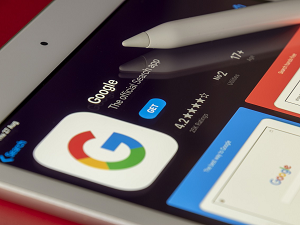 How careful are you truly when doing a quick Google search? Are you clicking on only approved websites, installing software from an official software store, and confirming you are not clicking on anything that may cause you to run into any malware?
How careful are you truly when doing a quick Google search? Are you clicking on only approved websites, installing software from an official software store, and confirming you are not clicking on anything that may cause you to run into any malware?
If the answer to all of these questions is yes, then you don’t need to worry about installing antivirus software onto the device you are using. If I we’re taking a wild guess, we would say that more than 90% of people fall short of following these steps. It is extremely easy to do a quick search on a certain topic and click on the first thing you see. It seems to be much easier to install an antivirus application, rather than worry about trying to get all of your stuff back if a hacking incident does happen.
Quick and Easy Tips to Making Your Mobile Device More Secure:
– Make sure to have a password to enter into your device. Many newer model phones are equipped with multiple security measures, including biometric security. We strongly encourage you to consider at the minimum adding a pin to your device if you are not comfortable with fingerprints or iris scans. In addition, if you have trouble remembering a pin, we recommend storing this pin in a secure location, NOT in your cell phone, email, or texts.
encourage you to consider at the minimum adding a pin to your device if you are not comfortable with fingerprints or iris scans. In addition, if you have trouble remembering a pin, we recommend storing this pin in a secure location, NOT in your cell phone, email, or texts.
– Update to the proper software regularly. This is as simple as turning on automatic updates for the apps on your device, or setting a reminder to update your apps weekly. In most cases, the majority of updates have to do with additional security measures to keep your data protected. Although it can feel tedious to do this all the time and we wonder why there are so many updates, it is usually because developers have exposed loopholes in the software.
– Turn off WiFi and Bluetooth when they are not in use. Leaving these “portals” wide open can allow individuals to utilize these channels to access data on your device if they have the enhanced capability to do so.
– Store your passwords in an Encrypted File. Remember what we said about writing them down and putting them somewhere like your purse, on your desk, or even storing them on your phone? When you utilize your phone’s password storage that includes additional biometric security, your are utilizing encryption that takes additional steps to access. You can also install browser extensions such as LastPass.
– Utilize a VPN when you are able to. VPN, or Virtual Private Network, creates a secure and private channel from your device to whatever software or server you are attempting to access. This is especially important when working from home and accessing secure documents on a secure server or network related to work or other needs.

Are you working from home and worrying that your computer may not be secure?
The first thing to help calm that worry is to make sure your computer is always up to date. Priority #1: installing a firewall. If you are listed as an Ultimate Care Client for Hoola Technology we will install the firewall for no cost. If you know how to install a firewall, then go for it! If you need someone to install it for you, then you will need to contact the right person to help you do that project.
Another important aspect of protecting your in-home office is changing your Network name from your WiFi provider and continuing to change your default password that you are given. There are plenty of instances where installers and service providers provide you with the same default password as all of their clients, and this only builds the expectation for even lesser skilled hackers that they can learn it once and access any number of resources of data. Of course, the most important thing with both of these things is to write those two things down.
Lastly, make sure that you have an antivirus application installed onto your computer that helps you keep your work space secure.
Hoola Technology is here to partner with your project, big or small, to encourage you to work more securely and have the tools and capacity you need to be productive. Contact us today to see how we can help improve your workflow!




